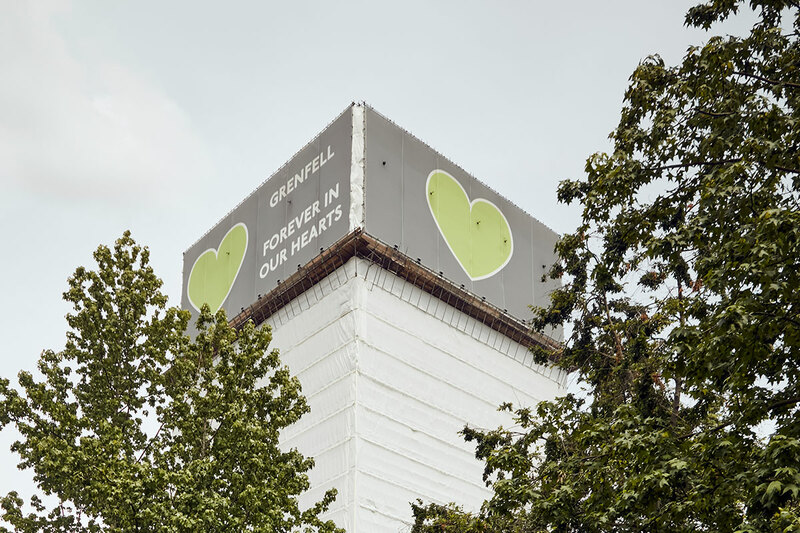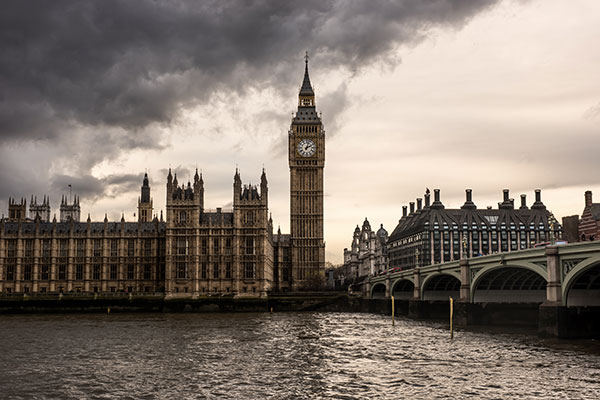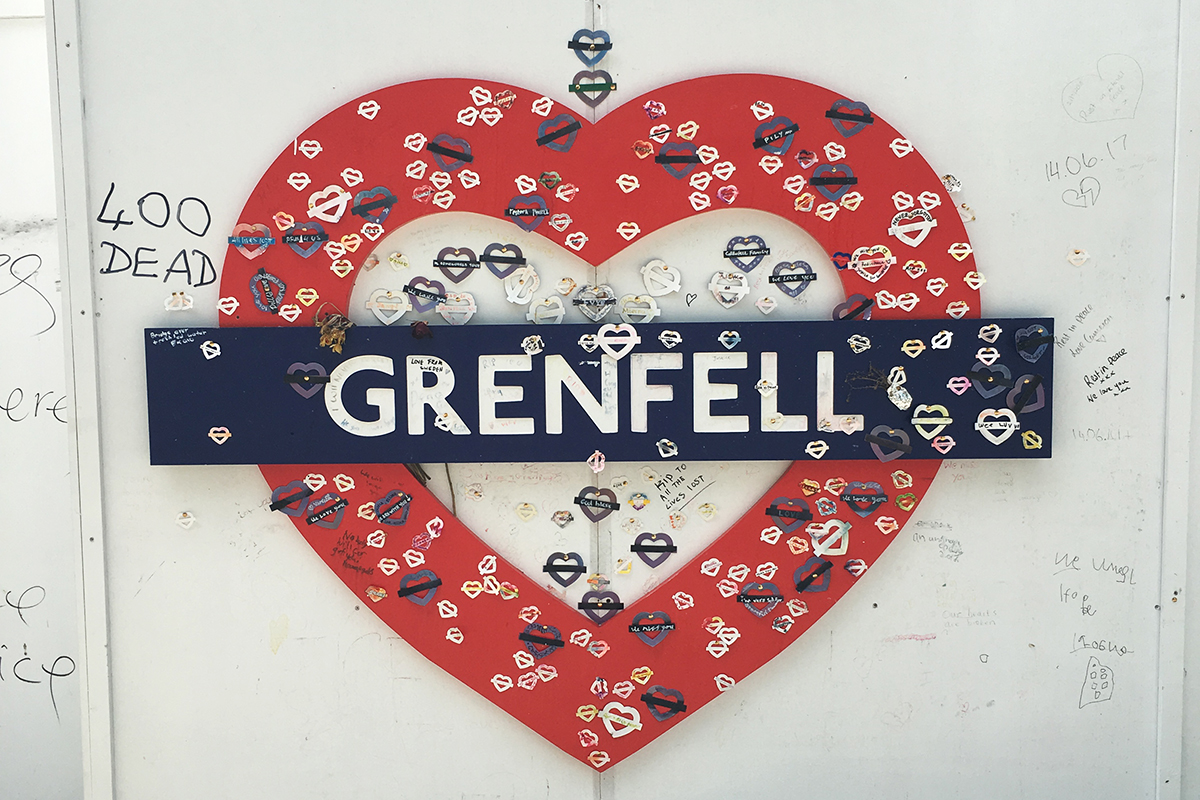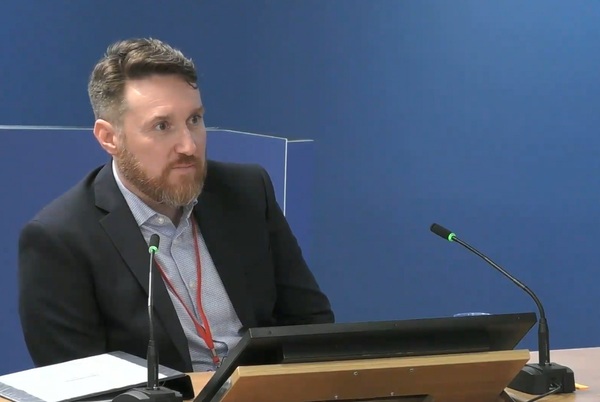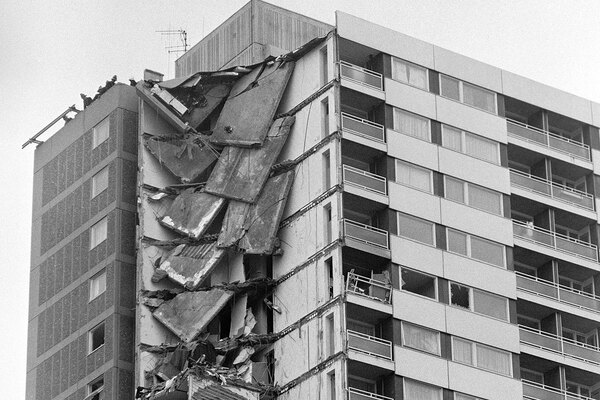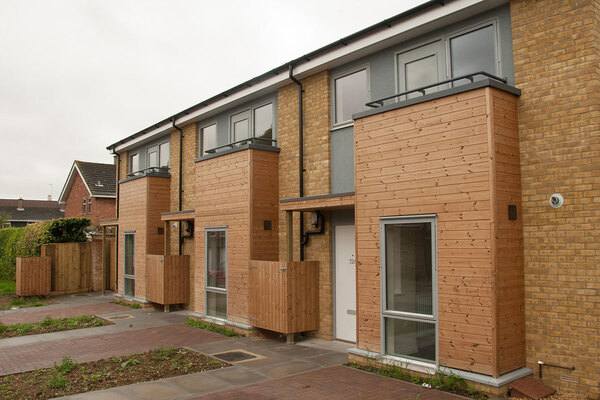Grenfell survivors accuse government of ‘shirking’ inquiry recommendations on fire doors
Grenfell survivors have accused the government of “trying to shirk away” from recommendations on mandatory fire door checks arising from the public inquiry into the disaster.
Ministers have backed away from inquiry chair Sir Martin Moore-Bick’s call to building owners and managers compelled by law to carry out three-monthly checks of all fire doors in blocks of flats.
A Home Office consultation on implementing the Grenfell Inquiry’s phase one recommendations instead proposes that three-monthly checks are only required for fire doors in the communal areas of high rises.
Six-monthly checks would be required for flat entrance doors in high rises.
These timeframes double for buildings between 11m and 18m tall, while the government said it is also seeking views on whether prescribing a frequency of checks for shorter buildings is “reasonable and practicable”.
A spokesperson for Grenfell United, which represents survivors of and those left bereaved by the fire, told Inside Housing: “The government is trying to shirk away from carrying out the recommendations of the inquiry.
“If the inquiry findings and recommendations are not taken seriously, then what’s the point?
“It is disappointing that safety of homes is not being taken as seriously as we would have hoped.
“The evidence showed that the doors at Grenfell were non-compliant without adequate checks. How many more homes will be put at risk?”
Housing secretary Robert Jenrick previously promised to implement the inquiry’s recommendations “in full”.
Sir Martin’s phase one report, published in October, found that missing or broken self-closers on fire doors at Grenfell helped smoke and toxic gases to spread through the tower.
An impact assessment published alongside the consultation estimated that three-monthly checks for all fire doors would cost the private sector £1.3bn over 10 years and cost the public sector £138.3m.
It estimated that its proposals would cost the private sector £173m over a decade with a £24.4m bill for the public sector.
The consultation document said the government is trying to find “a reasonable and practicable level of prescription in law” for fire door checks.
There is currently no specific legal requirement to check fire doors at certain intervals, but several pieces of legislation require them to be maintained.
Sir Martin also recommended that personal emergency evacuation plans (PEEPs) be legally required for all high-rise residents who may have difficulty self-evacuating.
But the government said “the lack of personnel available to assist during an evacuation, the complexity of any particular building and the roles of those responsible, high turnover of residents, and data protection concerns” present practical challenges to implementing this measure.
Instead, it is proposing that PEEPs only be required in buildings with a waking watch in place – mainly those with unsafe cladding.
For other high rises, responsible persons would be required to pass details of people who self-identify as needing evacuation assistance to the fire service and keep them in a premises information box.
A government spokesperson said: “We are determined to learn the lessons from Grenfell Tower and ensure a tragedy like this cannot happen again.
“We continue to consider all the Inquiry’s recommendations carefully and implement them in the most practical and effective manner, in a number of areas we have gone beyond the recommendations.
“The measures we are proposing are targeted and proportionate to risk, an approach that is supported by the Independent Expert Advisory Panel and the National Fire Chiefs Council.”
Update: at 11.39am 22/07/20 a comment from a government spokesperson was added to the story.
Sign up for our daily newsletter
Already have an account? Click here to manage your newsletters
